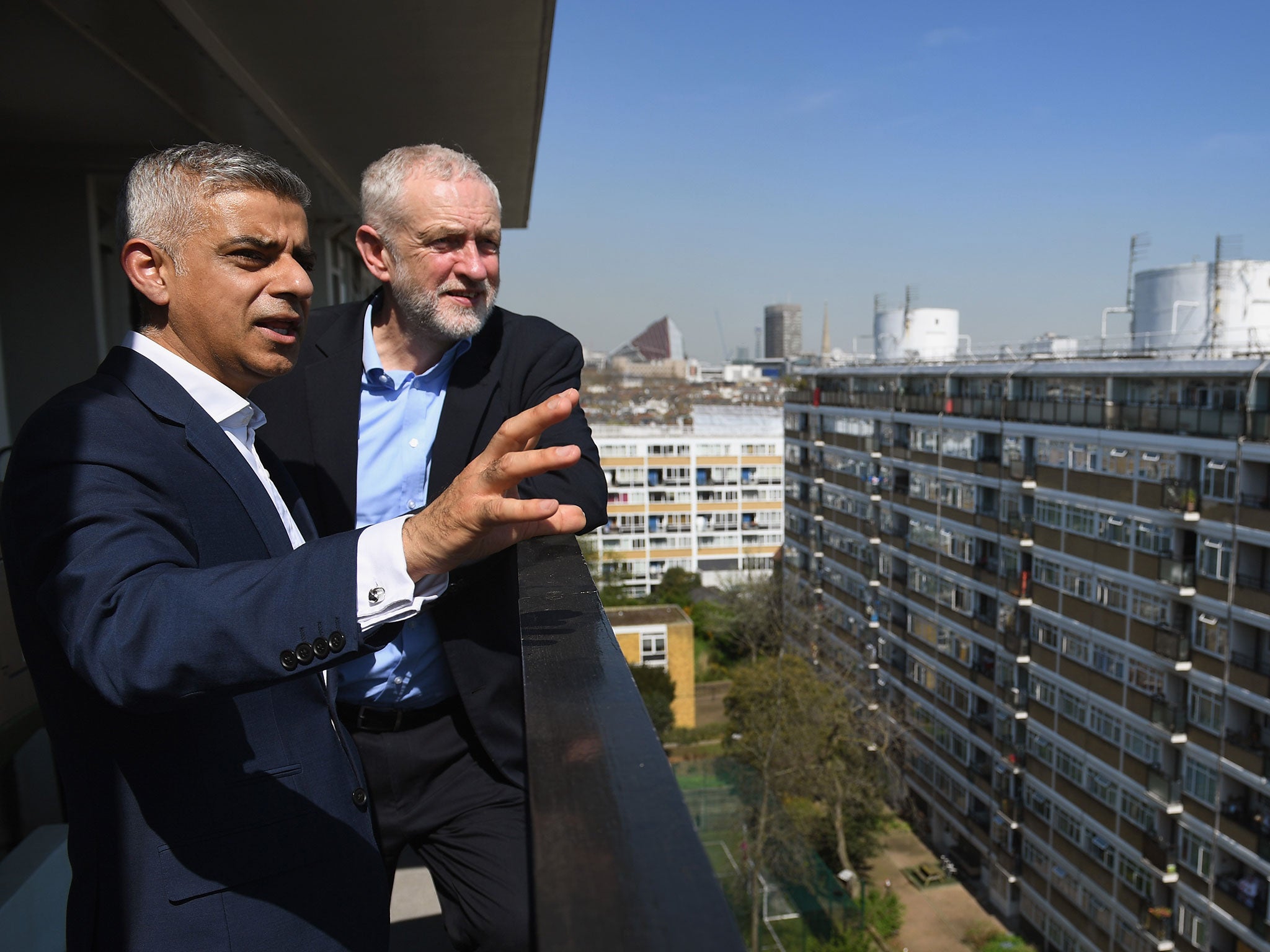Sadiq Khan calls on government to appoint social housing tenant as first residents' commissioner
Exclusive: Appointee would make renters' voices 'heard in corridors of power'

Your support helps us to tell the story
From reproductive rights to climate change to Big Tech, The Independent is on the ground when the story is developing. Whether it's investigating the financials of Elon Musk's pro-Trump PAC or producing our latest documentary, 'The A Word', which shines a light on the American women fighting for reproductive rights, we know how important it is to parse out the facts from the messaging.
At such a critical moment in US history, we need reporters on the ground. Your donation allows us to keep sending journalists to speak to both sides of the story.
The Independent is trusted by Americans across the entire political spectrum. And unlike many other quality news outlets, we choose not to lock Americans out of our reporting and analysis with paywalls. We believe quality journalism should be available to everyone, paid for by those who can afford it.
Your support makes all the difference.London mayor Sadiq Khan is calling on the government to appoint a social housing tenant as the country’s first independent commissioner for residents.
The new housing tsar would make sure the voices of social housing tenants are “heard in the corridors of power”, the mayor said, almost a year after the Grenfell Tower fire.
The appointee would have a similar role to the children’s commissioner, possessing legal powers and sitting separately to the government’s social accommodation regulator.
The Labour mayor first called for a commissioner on social housing to be appointed in September 2017, in the aftermath of the north Kensington blaze. Following a consultation on the proposals, Mr Khan is demanding the representative should themselves live in low-rent accommodation.
Before presenting a revised housing strategy to the London Assembly, Mr Khan said: “I grew up on a council estate, so I know just how important social housing is.
“I’m deeply concerned that social housing tenants’ voices are not being heard in the corridors of power and that’s why we need an independent commissioner to stand up for social tenants.
“It is clear to me, and to many Londoners who contributed ideas to my strategy, that this person should themselves be someone who lives in social housing.
“Today’s strategy sets out how we are doing everything within our power to build more social rented and other genuinely affordable homes, helping councils to build more homes themselves, and making sure that residents’ voices are heard.
“But it’s also clear there’s only so far we can go without government stepping up – it is crucial they give councils and City Hall the resources and powers we need for a step change in the number of affordable homes we can build.”
As part of his strategy to improve the capital’s housing, the mayor launched a landlord checker that aims to “name and shame” poor property owners. All London boroughs have signed up to the online resource, which also seeks to help people find affordable homes.
The mayor’s revised housing strategy also includes an additional £1.67bn of affordable housing investment the mayor secured from government earlier this year. The “majority” of this will be spent on new homes on social rent levels, the mayor said.
In April the mayor said work started on a “record” 12,500 affordable properties in 2017-18, up from 6,725 in 2016-17.
Regardless, questions have been raised about Mr Khan’s ability to tackle the size of the capital’s housing crisis, since private developers have proved reluctant to build large quantities of affordable homes.
Despite Mr Khan’s objections, a development of 700 homes in Ilford included just 4 per cent affordable housing. The borough has a policy where 50 per cent of all new homes should be affordable.
Mr Khan’s demand that a social housing tenant be appointed commissioner came after evidence hearings in the Grenfell Tower inquiry began on Monday. Expert reports released on the morning documented a catalogue of serious safety breaches that contributed to the blaze that killed 72 people.
More than 150 social tower blocks across England have been found to have aluminum composite material (ACM) cladding, blamed for spreading the fire in north Kensington in the early hours of 14 June.
Yet the latest statistics have revealed only 10 of those high-rises have had the panelling replaced.
Subscribe to Independent Premium to bookmark this article
Want to bookmark your favourite articles and stories to read or reference later? Start your Independent Premium subscription today.
Join our commenting forum
Join thought-provoking conversations, follow other Independent readers and see their replies
Comments